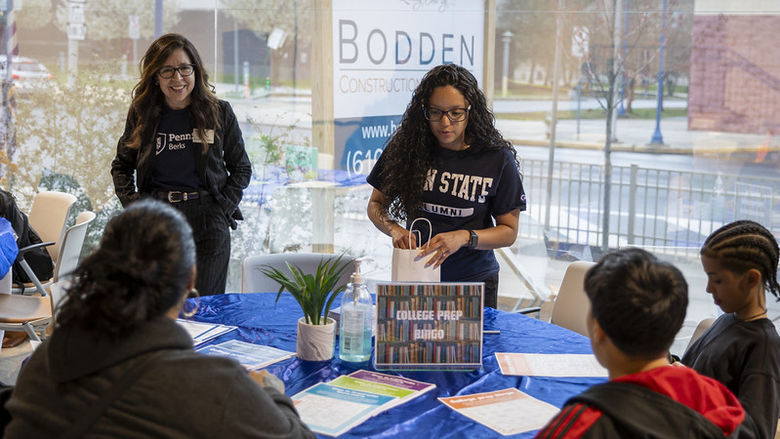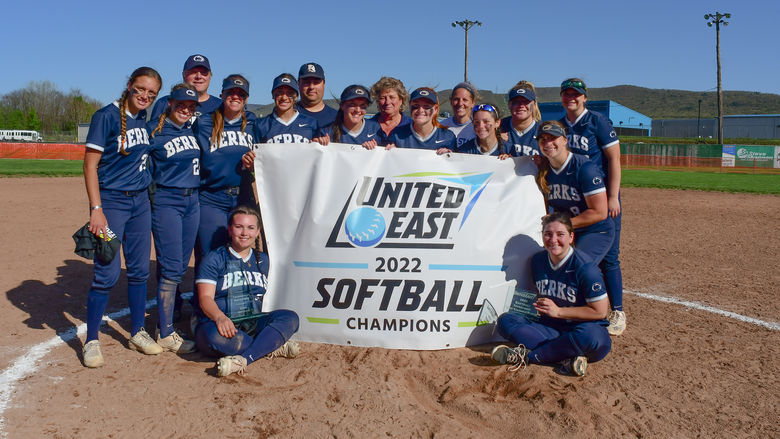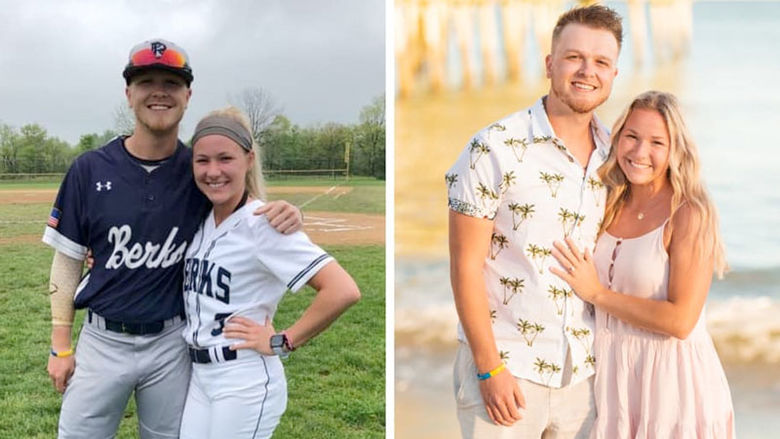

This dialog contains the full navigation menu for this site.

During the week of March 5–13, ten Penn State Berks students and two staff advisers traveled to Belfast, Ireland to work with the nonprofit organization Amazade on initiatives related to youth, hunger, and homelessness–all major issues facing citizens of Northern Ireland.
This year, instead of choosing a project by destination, students selected a project by its mission.
“Students were given a list of proposed projects all over the world. However, they were not given the locations. They were only told what the various projects were and they ranged from working with the homeless to building a library for a small town that didn't have one. Overwhelmingly, students chose the project in which they would be working with at-risk youth with the goal of promoting peace and reconciliation between two conflicted communities,” explained Brittney Schlecter, Student Activities and Volunteer Coordinator and one of two staff advisers on the Berks Alternative Spring Break to Belfast.
Penn State Berks students who participated in the Alternative Spring Break to Belfast included seniors Bianca Aviles from Atglen, PA; Crystal Diem, Morgantown; and Katarina Zambanini, Barto; junior Juliette Piersody, Wernersville; sophomores Natalie Grubb, Lancaster; Brianna Hasselman-Colon, Reading; Kathryn Jordan, Toms River, NJ; Chelsea Watts, Geigertown; and first-year students Laura Escobar, Yardley; and Julienne Munson, Bechtelsville.
The students began by enrolling in the hybrid course “Alternative Spring Break–Ireland.” This course deals with the issue of “The Troubles,” as well as concepts involving global citizenship and service philosophies. As the students learned, much of the youth plight and homelessness in Northern Ireland is attributed to “The Troubles.”
From 1968–1998, Northern Ireland was torn apart by a violent 30-year conflict known as “The Troubles.” At its heart lay two mutually exclusive visions of national identity and belonging. The goal of the Protestant majority (most of whom are unionists who self-identify as British) was to remain part of the United Kingdom, and the goal of the Catholic minority (most of whom are nationalists who self-identify as Irish) was to become part of the Republic of Ireland. Although the conflict was resolved nearly 20 years ago, its effects are still evident in Northern Ireland today, especially among its youth who suffer high rates of mental illness, drug and alcohol abuse, homelessness, and suicide.
When they first arrived, the Berks students had an orientation with YouthWorks, a nonprofit organization whose mission is to create a safe environment for youth to take on responsibility with a focus on peace and reconciliation through education. Students also learned more about the history of the conflict in Northern Ireland and how quickly a conflict can become tumultuous, and they learned about Irish culture, heritage, and history through a number of events, including a visit with the Lord Mayor.
In the evenings, they accompanied YouthWorks to one of three different youth centers, where–in the course of just one week–the Berks students built relationships with the youth, ages 8 to 18, while helping to facilitate structured activities to teach them about mentorship, role modeling, and American culture.
They also had an opportunity to work with youth from a variety of backgrounds, including a LGTB group, with whom they discussed the concept of creating “safe spaces” and another group with disabilities. The Berks students soon found that there were more similarities than differences, such as the ability to enjoy the simple pleasures of life, such as creating s’mores, which were a big hit with the Belfast youth.
“At our youth center we were really able to make an impact, especially on the younger children. We taught them new games and dances and in return, they shared some with us. One night we had the opportunity to work with an amazing special needs group. They were some of the kindest people I have ever met. We were able to get to know them one-on-one and played a game of soccer at the end of the night. Working with these groups has made me want to volunteer at an after-school program and help children grow into bright young people,” commented Brianna Hasselman-Colon.
During a few evenings, the Berks students met outside and began their slow walk through the pathways and sidewalks that many of the homeless of Belfast call home. Traveling with their sponsor organization, Homeless Aware, the students were amazed to witness the personal relationships that their guide, Paul McCuster had with each and every homeless individual who they met on the streets. In addition to speaking with individuals, the Berks group also offered those they encountered warm tea, coffee, and sandwiches that we prepared earlier in the day.
The students learned the implications of “sleeping rough” or sleeping on the streets. McCuster explained to the students that individuals who are consistently on the streets have a higher mortality rate than those who are able to stay in hostels or find shelter.
This point was driven home just a short time after the students returned to the United States. “Our students were able to meet one special individual, Catherine Kenny, when we walked through the City in the evenings and again when we visited the Welcome Center (a homeless shelter),” explains Betsy Scarpaci, Assistant Director of Student Affairs/Residence Life and the second staff chaperone on the trip. “We found her to be kind, humorous, and caring. As we walked away, Paul informed us that if Catherine wasn’t off the streets soon, she may pass away. Unfortunately, shortly after returning to the United States, our students learned that Catherine passed away.”
To learn more about Kenny, visit BBC news. Additional coverage of homelessness and Kenny’s passing was also reported by the Belfast Telegraph.
During their week in Belfast, the students covered a lot of ground. In addition to working with the youth and homeless populations, they toured the “Peace Walls,” a series of border barriers in Northern Ireland that separate Catholic and Protestant neighborhoods built to minimize violence between these two groups.
The Peace Walls range in length from a few hundred yards to over three miles. They are made of iron, brick, and/or steel and are up to 25 feet high. Some include gates that allow passage during daylight but are closed at night. In recent years, they have become tourist attractions, and people from all over the world visit to see the famous murals.
“As you explore the City of Belfast, you will see an immense amount of artwork and graffiti on most (Peace) Walls. Most images convey a political message ranging from getting justice for slain family members to promoting peace amongst the Protestant and Catholic communities,” explains Scarpaci.
At the end of the trip, the students were invited to a section of the Peace Walls where visitors from all over the world, including the Dalai Lama and former U.S. President Clinton, have come to scribe a message of peace.
During their time in Ireland, the students also participated in a “Global Conversation” with Penn State Berks students currently studying abroad in Africa. The purpose was to create a broader understanding surrounding topics such as culture and conflict and reconciliation. Conversations took place via Skype and other social media.
“We had the opportunity to have a Skype conversation with another group of Penn State students who are studying in South Africa for the semester,” stated Katarina Zambanini. “They are part of a program called Parks to People. We had a very interesting conversation comparing the two demographics of people we were interacting with. There were a lot of similarities between them, because the people we were interacting with segregated themselves between Catholics and Protestants, whereas the people in South Africa separated themselves by class.”
The Alternative Spring Break trip was organized by Brittney Schlecter, Student Activities and Volunteer Coordinator at Penn State Berks, and Betsy Scarpaci, Assistant Director Student Affairs/Residence Life.
This alternative spring break experience is funded in part through The Howard O. and Jean Beaver Endowment For Community Service.
For additional information, visit the Berks Alternative Spring Break blog.


